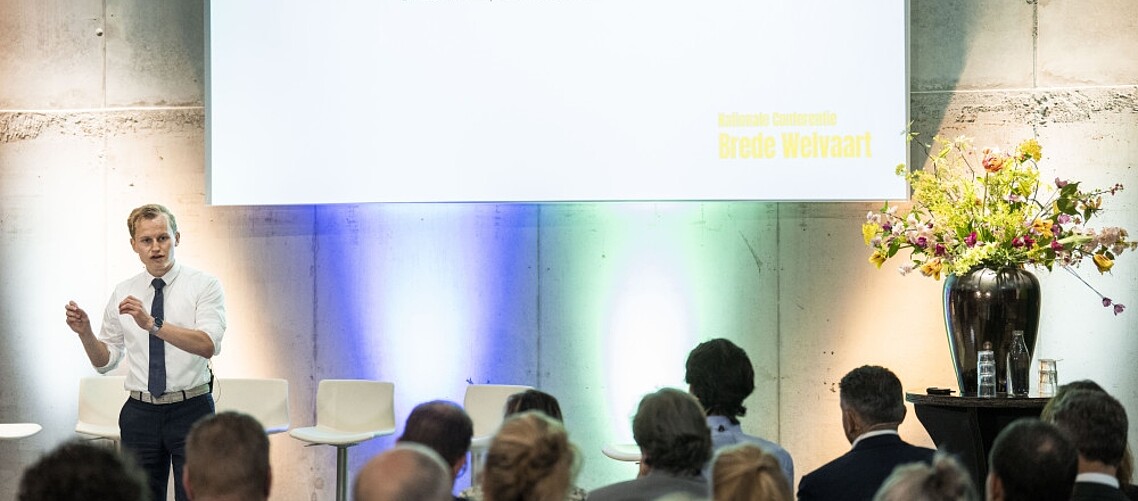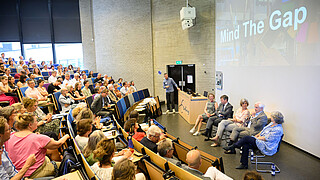Redefining value in the board room
Companies worldwide are not on track to achieve the Sustainable Development Goals (SDGs), climate targets and biodiversity promises. The far-reaching consequences of this are becoming more tangible, for example in weather extremes. The pressure on executives is growing, because there are new regulations and climate lawsuits. Executives are increasingly expected to use money, talent and innovative power even more effectively to accelerate sustainability transitions and to make societal impact central to decision-making.
For a fundamentally sustainable economy – an impact economy – value in organisations needs to be redefined. It doesn’t prioritise financial returns, but puts impact information at the same level as financial information in organisations. Companies must measure, report and steer on social, human and natural value with largely the same rigour and focus as financial value. This broad definition of value needs to be integrated into all aspects of business decision-making, from procurement to investment decisions and from strategy to reporting.
The Erasmus Platform for Sustainable Value Creation
There is a growing need for new methods to incorporate sustainability into asset pricing and valuation, and corporate governance is making a transition towards long-term value creation as the ultimate goal for corporates. The Erasmus Platform for Sustainable Value Creation develops new insights through research and education in close collaboration with leading sustainable finance players in the industry and academia. The platform brings together academic faculty research, PhD, master and bachelor students, MBAs and executive education, NGOs and professionals in the financial industry.
Why the CFO is essential in the impact economy
An impact-driven CFO is essential for this redefinition of value in organisations. The traditional CFO plays a key role in harnessing the revenue model, resource allocation across business units, forecasting, strategy development and investment decisions. It’s all geared, rather narrowly, towards financial value creation.
A broader definition of value should become dominant to become a more impactful organisation, turning the CFO into a Chief Value Officer (CVO). A CVO manages their organisation based on the True Profit, the real profit of the company for society. This means that the CVO wants to incur as little external, societal costs as possible and as much societal profit as possible. This inevitably leads to a commitment to fundamentally different, regenerative revenue models and innovations.
Impact accounting
This might seem demanding, but there are various instruments at a CVOs disposal to manage, report and steer on impact. A fundamental tool is impact accounting, as described by the Impact-Weighted Accounts Framework. This framework, which measures value creation beyond profit, was developed by the Impact Economy Foundation together with Harvard Business School, RSM, Singapore Management University and the Impact Institute. It guides organisations in developing annual impact statements. The impact statements include an Integrated Profit & Loss (IP&L) statement in which the quantified and monetied impacts of a company is shown on six levels:
- financial
- production
- intellectual, which includes intangible assets such as (the value of) patents, copyrights and licences, but also tacit knowledge, systems, procedures and protocols
- natural, for example climate, biodiversity and land use
- social, including contributions to human rights
- human, for example health and well-being of employees and customers.
The levels of non-financial impact are valued according to their effect on people's current and future well-being. The IP&L reflects the real profit (True Profit) of the company in a comparable, harmonised way. It’s about the total contribution or detriment of the company to the well-being of society.
Impact and strategy
Publishing an IP&L annually is only the start of a larger impact information infrastructure. With regularly updated monetised impact information underlying the IP&L, a broad array of impacts, such as impact on biodiversity and climate change, can also be included in Net Present Value calculations for CapEx decisions, procurement decisions and investment decisions.
In addition, the True Profit of an organisation can form the basis for remuneration schemes, incentivising employees to enlarge the positive societal impact of the organisation while reducing negative ones. Thirdly, based on the monetised impact information, impact KPIs can be developed and form the heart of an organisation’s strategy.
Steering on impact
In conclusion, a CVO is key for meeting society’s demand of integrating impact in the heart of businesses. Through impact accounting, a CVO can provide the basis for the organisation to measure, report and, most importantly, steer on impact. In this way, we work towards an impact economy in which work, innovation and entrepreneurship truly contribute towards resolving our societal issues.
Do you know an impact-driven CFO who leads an organisation and sector towards more impactful practice? Nominate this executive for the Chief Value Officer of the Year award via www.cvovanhetjaar.nl.
Werner Schouten
RSM alumnus Werner Schouten (MSc Global Business & Sustainability 2022) is the director of the Impact Economy Foundation. He was the chairman of the Youth Climate Movement from 2019 until 2021. He was ranked number 1 in the Trouw Sustainable 100. He is co-host and sustainability expert on the radio show BNR Koplopers. He is also a member of the advisory board of ASN Bank, TNO and the VNCI.

